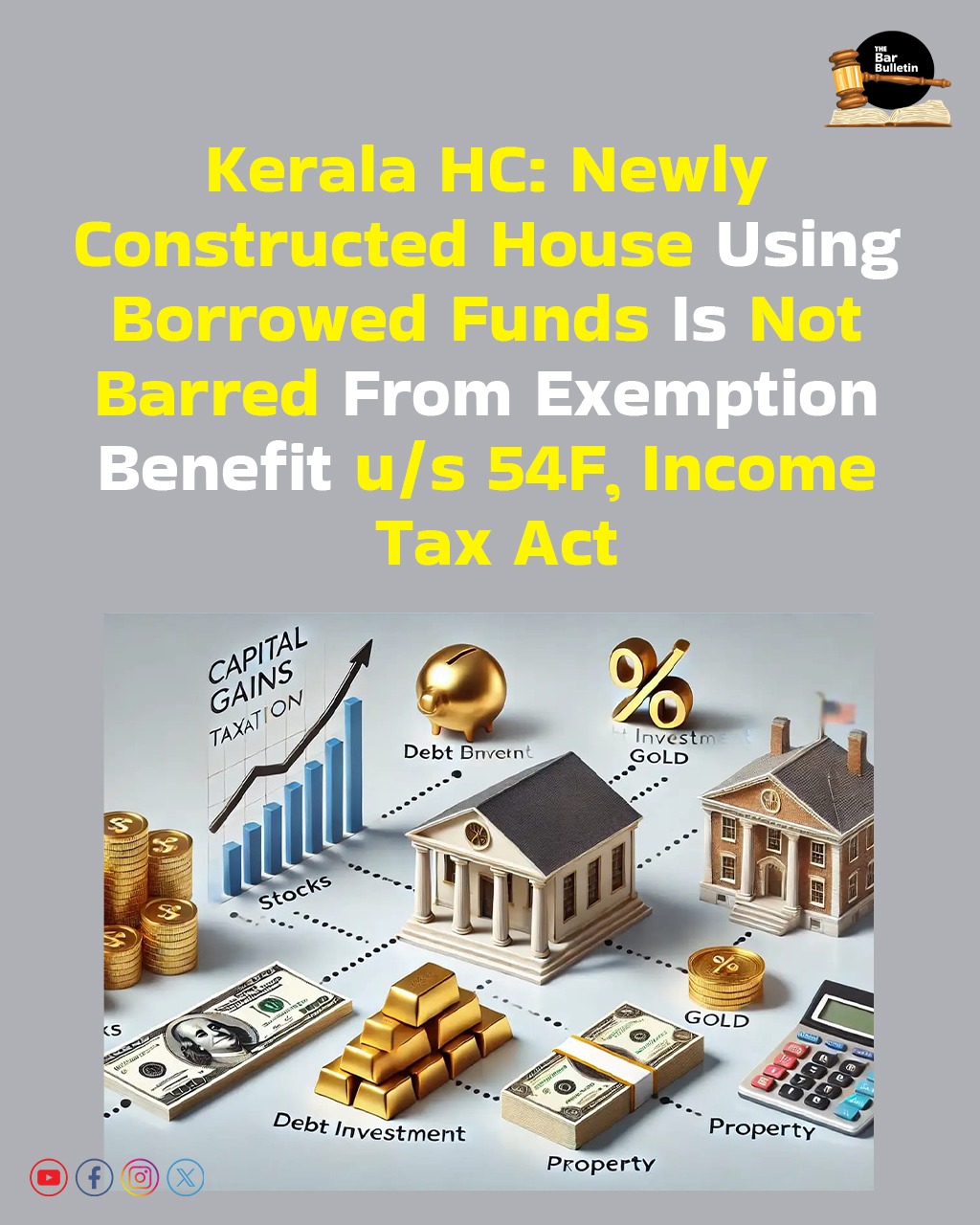The Kerala High Court (Ernakulam Bench) recently clarified that Section 54F of the Income Tax Act does not prohibit a taxpayer from arranging funds from other sources (including borrowing) for purchasing or constructing a residential building, as evidenced by the provision allowing appropriation of funds spent even one year before the transfer in case of purchase.
A Single Judge Bench of Justice Ziyad Rahman A.A. examined Section 54F, which permits exemption from capital gains tax if the taxpayer constructs a residential house within three years of transfer, noting that the provision does not mandate that construction must be done exclusively with funds from the sale of a property.
The Single Judge emphasized that while borrowed funds are permissible, the taxpayer bears the obligation to satisfy authorities that funds were spent with the intention to appropriate the capital gains income, requiring proper documentation and establishing a clear link between the income and the construction. The Bench observed that the ITO’s determination of tax liability is primarily to protect Revenue’s interests and prevent tax evasion, rather than a final assessment of the taxpayer’s entitlement under Section 54F.
Observing that the Capital Gains Account Scheme, 1988, specifically requires the Assessing Officer’s permission for account closure, which serves to ensure conditions for exemption are prima facie satisfied before releasing funds, the Single Judge found that the Income Tax Officer’s rejection constituted only prima facie findings, not conclusive determinations, as the proper adjudication of Section 54F claims can only occur through formal assessment proceedings under Sections 143 or 148 of the Income Tax Axt.
Conclusively, the Bench found it improper to reject the entire request when the determined tax liability was less than the deposited amount, holding that the petitioner should be permitted to withdraw excess amounts after retaining sufficient funds to cover the assessed liability. The Bench, therefore, directed the ITO to grant permission for releasing the balance amount in the Capital Gain SB Account after retaining amounts equivalent to the determined tax liability.
Briefly, in this case, the petitioner, a 67-year-old widow, received a property of 4.04 Ares through a gift deed in March 2020 and subsequently sold it in two parts for Rs. 39.60 lacs and Rs. 43.64 lacs, respectively. She deposited both amounts in a Capital Gain SB Account with SBI to claim exemption under Section 54F of the Income Tax Act for constructing a new residential house within three years. Though she constructed a house at Edappally using borrowed funds from her daughter and son-in-law, intending to repay the debt from the deposited amounts, the Income Tax Officer rejected her request to close the account and release the funds, determining tax liabilities of Rs. 8.51 lacs and Rs. 7.69 lacs, for assessment years 2021-22 and 2020-21, respectively.
Appearances:
Advocates Akhil Suresh, Kalliyani Krishna Amrith M.J., Isabell Manoj, and Rahul T., for the Petitioner/ Taxpayer
Advocates Cyriac Tom, for the Respondent/ Revenue

